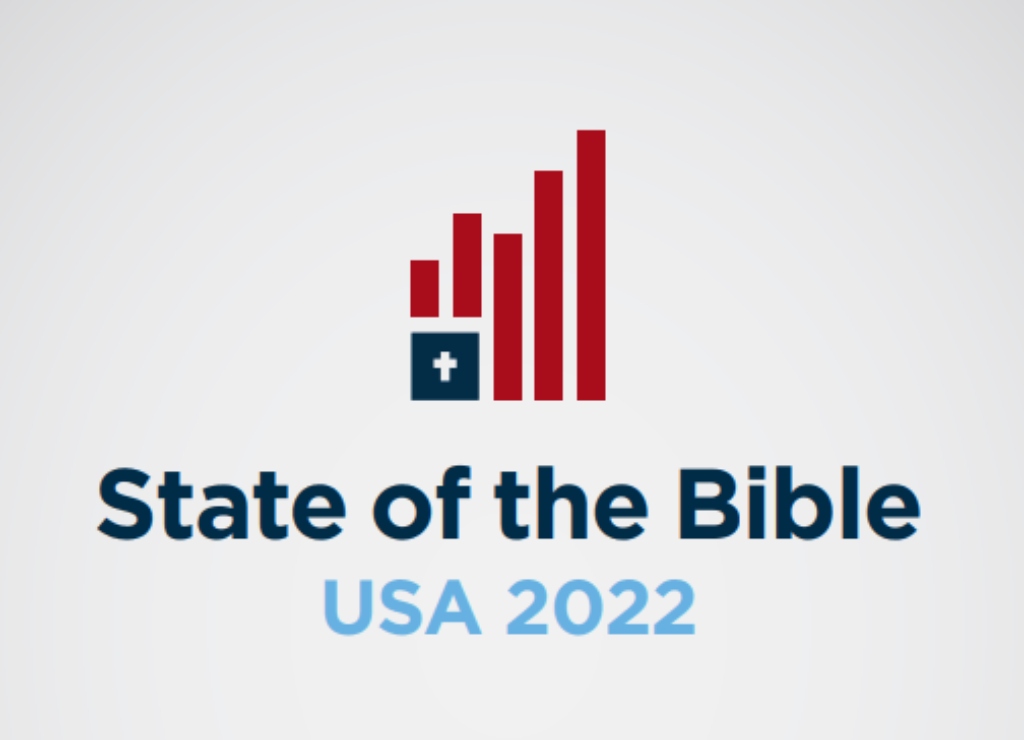Printed Bibles remain the most popular choice among Bible readers, the American Bible Society (ABS) said in its latest installment of the 2022 State of the Bible.
Bible readers who classify as Scripture-engaged, meeting more stringent criteria of Bible use, are also overwhelmingly more successful in unconditionally forgiving those who wrong them, ABS said in the study’s seventh chapter released Oct. 13 and focused on how Bible users interact with Scripture.
“You might think no one is reading printed Bibles anymore,” researchers posed in the report. “Actually, print is still the Bible format used most often. Nearly seven of 10 Bible users say they have read on their own in the past month from a printed version of the Bible, but several tech options are vying for second place, chosen by nearly half of Bible users.”
Specifically, 69% of Bible users read from the printed Bible within the month preceding the query, and 48% used a Bible app on a phone, tablet or computer, ABS said, with the categories overlapping. Among additional delivery methods, 46% watched a Bible-oriented program, 46% searched for Bible content online, 29% enrolled in an app-based Bible reading plan, and 28% listened to a Bible-related podcast.
Printed Scripture remains popular across generations, although younger adults ages 18-57 are more likely to engage online than adults older than 57. A majority of younger adults (69%) and older adults (75%) read printed Scripture within the previous month. But younger adults engaged with Bible apps more than older adults within the preceding month, 53% compared to 35%, ABS said.
The Bible has transformed the lives of those who read it, ABS said. Among Bible users, 92% said the Bible’s message had transformed their lives, with only 8% seeing no personal transformation. Even those who don’t use the Bible at least three times a year – ABS’s benchmark for categorizing people as Bible users – 38% agreed that the Bible has transformed their lives. Non-Bible users have encountered Scripture through occasional church attendance or through personal conversations, ABS reasoned.
“Of course, we wish more Americans would interact with Scripture on a regular basis,” ABS said in the report, “but this is a noteworthy statistic. Of the 155 million non-Bible users in America, nearly 60 million would say the Bible message has transformed them.
Describing forgiveness as one of the most difficult biblical mandates to achieve, ABS found that Bible users who ranked as “Scripture engaged” reported more success in forgiving others regardless of whether those who wronged them apologized and sought forgiveness.
Among the Scripture engaged, 47% strongly agreed and 47% somewhat agreed with the statement, “I am able to sincerely forgive whatever someone has done to me, regardless of whether they ever ask for forgiveness or not.” Among the Bible disengaged, only 11% strongly agreed with the statement, 48% somewhat agreed, and 40% disagreed somewhat or strongly.
ABS judges scripture engagement based on responses to 14 survey questions centered on the frequency of Bible use and its impact on the lives of readers, revealing what researchers consider a “high-fidelity, numerical measure of holistic Scripture engagement among U.S. Bible users.”
In exploring ways to increase Bible use, the research found the most promising indications among those who approach Scripture by reading one or more chapters or a complete story at a time. In that category, 48% were more likely to increase their Bible reading. In other categories, 42% of those who follow a schedule, plan or program are more likely to increase their Bible reading, compared to 24% of those who read the Bible at the same time each day.
“In our churches and ministries, we need to keep meeting people wherever they are,” researchers wrote. “Show them how to make the Bible a part of everyday life. Show them how it addresses their issues. And always recognize the transforming work God is doing in each of them.”
ABS researchers collaborated with the University of Chicago’s National Opinion Research Center to survey a nationally representative group of American adults on topics related to the Bible, faith and the church. The study conducted online via telephone produced 2,598 responses from a representative sample of adults 18 and older in all 50 states and Washington D.C.
The seventh chapter of the study, along with the first six chapters already released, is available here. Additional chapters are slated for release through December.
(EDITOR’S NOTE – Diana Chandler is Baptist Press’ senior writer.)

